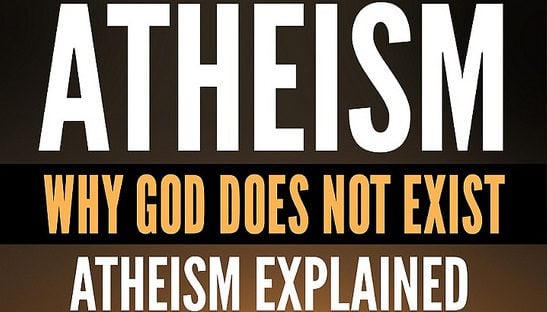
Atheists will sometimes challenge us to prove that God exists. Sometimes they assert that the more we discover from science, the less room there is for God. So, with more science we will discover that fact that God doesn’t exist.
The problem is that we aren’t using the word “God” in the same way.
These atheists are right. God doesn’t “exist” as a being within the universe. If we believed that God is a physical entity, then we’d be in trouble. But God isn’t like Zeus. God doesn’t hang out on Mt. Olympus with other gods.
Science is the study of things that exist within the universe. You see, to claim that science will eventually leave no room for God is to think that God takes up space – that God is a being within the universe. But that’s a category mistake.
Part of the genius of the Judeo-Christian tradition is that the ancient Jews didn’t believe that God was a being within the universe. God is not a category of beings within the universe. In fact, whenever someone claimed that God was a being within the universe, the ancient Jews called it idolatry. Commenting on the prophet Isaiah, theologian James Alison states that God is more like nothing in the universe than like anything in the universe. (See James’ book, Jesus the Forgiving Victim.)
Why does this matter? For me, it’s not about defeating atheists in an argument about God. That’s a rivalry that gets us nowhere. And frankly, I don’t think God is interested in our rivalries. It’s more about the fact that God is not a thing in creation that we can grasp and use as a weapon against others. That is also idolatry.
Even our ideas about God are not things to be grasped as weapons to defeat our opponents. Using theology as a weapon to define who is included and who is excluded is idolatry.
For example, there’s a great story in the Old Testament about the prophet Elisha. A man named Naaman had leprosy and went to Elisha to be healed. But Naaman had a big problem – he was the commander of the army of Aram, one of Israel’s greatest enemies. Make no mistake, Naaman was a terrorist. Not only did he endorse raiders from Aram looting and threatening Israelites, he also kidnapped and enslaved children from Israel.
But nobody in Aram could heal Naaman, so he went to Elisha.
Elisha didn’t use God as a weapon to defeat his enemy who terrorized his people. God didn’t respond to Naaman’s violence with more violence. Rather, God worked through Elisha with nonviolent love to heal Naaman. After he was healed, Naaman the terrorist was converted to believing in the God of Israel. Naaman’s conversion didn’t come from Elisha threatening divine fire and brimstone upon him. There’s no theological manipulation in the story. No “Convert or you will die!” moment. Nor did his conversion come from Elisha arguing the finer points of ancient Israelite theology. There was none of that. The fact is that Naaman was converted by an act of divine love.
About 800 years later, Jesus placed himself within this nonviolent story of Elisha by teaching his followers to, “Love your enemies and pray for those who persecute you.”
It’s important that atheists and theists be clear about what we mean by “God.” For Christians, God is not a being within creation. No matter how hard you look in the universe, you will not find a physical being we call God. When we look at the story of Elisha and Naaman, when we look at the whole life, death, and resurrection of Jesus, we discover that God is the Spirit of nonviolent love that embraces all things, all people, including our enemies, yes, even including terrorists.











